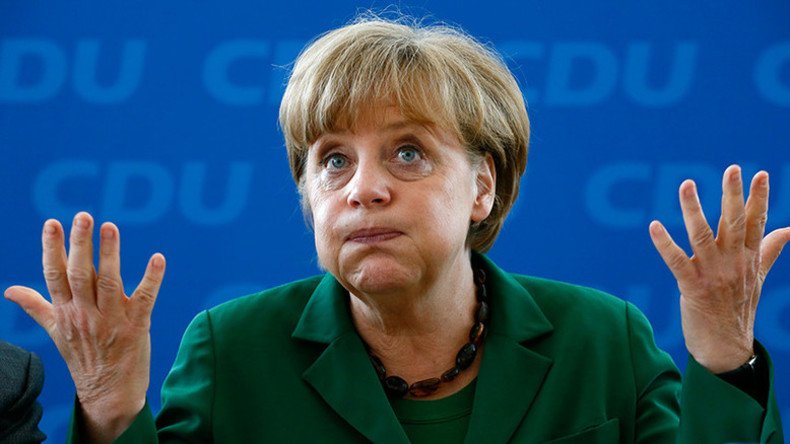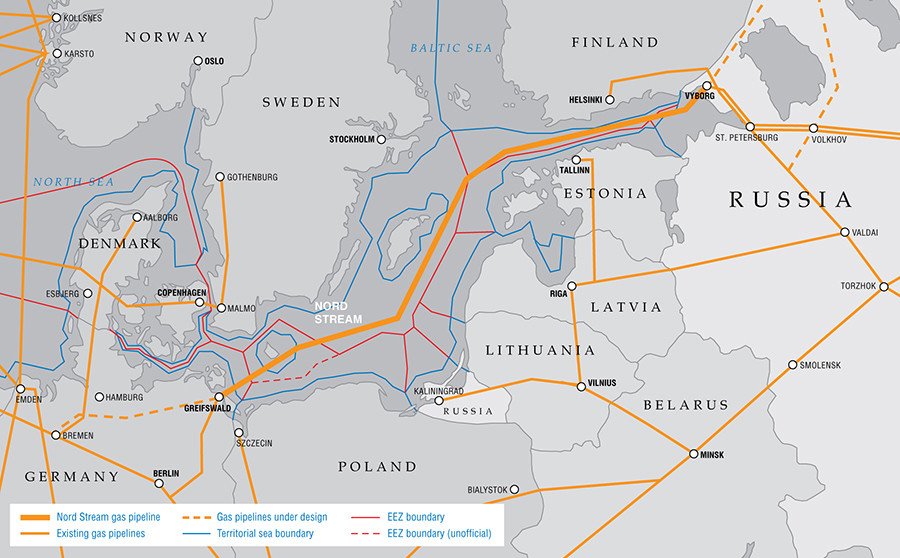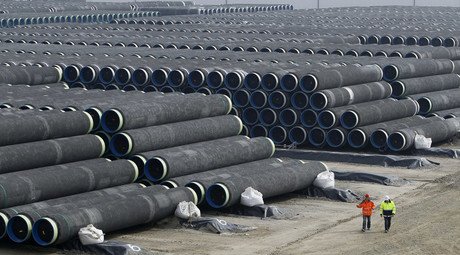Nine EU countries want to bury Nord Stream-2

A group of Eastern European countries has sent a letter to the European Commission calling to block the Nord Stream-2 gas pipeline from Russia to Germany bypassing Ukraine. They say it goes against the EU’s energy diversification and security policies.
The countries against Gazprom’s deal with Berlin are headed by Slovakia and Poland who are believed to have initiated the campaign. They are supported by the Czech Republic, Hungary, Romania, Estonia, Latvia, Lithuania and Greece. Bulgaria was planning to sign the document, but walked away, according to the FT. The EU has confirmed receiving the letter.
Greek Energy Minister Panos Skourletis said Athens did not sign a petition to block Nord Stream-2. He confirmed this to Russian Energy Minister Aleksandr Novak during a meeting on Wednesday according to the Ministry.

According to the petition, the Nord Stream-2 pipeline will allow Germany to dominate the European gas market.
“Nord Stream 2 would be, above all, detrimental in geopolitical terms . . . for the purpose of exerting more political pressure and applying blackmail on the EU, its eastern member states and its eastern neighbors,” said Polish MEP Jacek Saryusz-Wolski, a member of the centre-right leadership in the European Parliament.
#Ukraine to lose $2 billion because of Russia's #NordStream2 pipeline - PM Yatsenyuk http://t.co/mjAYFJxtWWpic.twitter.com/eeJB7XKxQ1
— RT (@RT_com) September 11, 2015“In the current geopolitical context, enhancing Gazprom’s — the external expression of the Kremlin’s policy — position on EU territory could be a geopolitical game-changer, especially for the EU’s neighborhood,” he added.
At the same time the President of the European Commission, Jean-Claude Juncker has said the project should be considered not as a political issue, but as a commercial one.
Nord Stream-1 started in 2011 despite strong opposition from Eastern European countries. Radoslaw Sikorski, who was the Polish foreign minister at the time, said the pipeline was similar to the 1939 Molotov-Ribbentrop pact that divided Poland between Nazi Germany and the Soviet Union.
However, German Chancellor Gerhard Schroder insisted on signing the deal. These were his last days in office, and after leaving his post Schroder was appointed chairman of the company that runs Nord Stream, the North European Gas Pipeline Company.
The second part of the pipeline depends on the political will of Angela Merkel, the current German Chancellor. Germany is by far the biggest consumer of Russian gas and extending the pipeline is a good deal for Berlin. However, it is unclear whether Merkel will go as far as her predecessor judging by her unwillingness to defend troubled domestic companies like Volkswagen and Deutsche Bank.
When Germany’s Vice-Chancellor Sigmar Gabriel visited Moscow in October, he said that politics should be left behind in building the pipeline.
The Nord Stream-2 pipeline project has become necessary for both Russia and the EU due to the continuing problem of reliability of gas transit though Ukraine. Russian Energy Minister Aleksandr Novak warned German and French colleagues that Kiev could face a gas shortage this winter. This could result in a gas crisis similar to 2006 which left parts of Europe without heat after Ukraine began to siphon off gas sent to the European market.
In September, Gazprom signed a deal to create a company to construct Nord Stream-2. It will include two new pipes that will deliver an additional 55 billion cubic meters of gas annually from Russia to Germany via the Baltic Sea bypassing Ukraine.
Among the shareholders in the project called New European Pipeline AG will be Gazprom, E.On, Shell, OMV, BASF/Wintershall and Engie (former GdF Suez). Gazprom will hold a 51 percent stake, and its European partners will each have about 10 percent. The project's route is expected to follow the 1,224 kilometers of Nord Stream-1.














